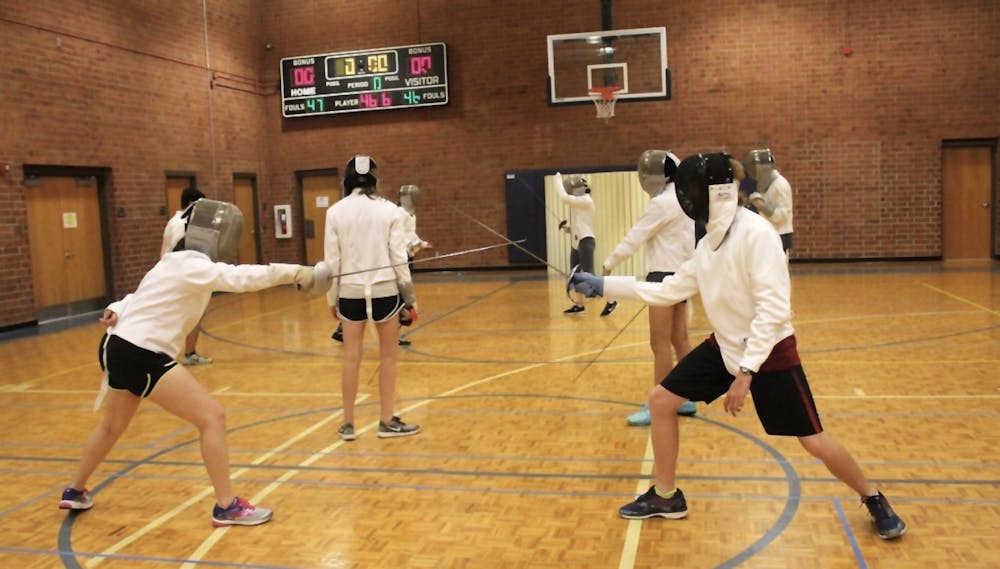Despite Elon University providing recommendations to keep club sports on campus safe, one sport — club fencing — decided to suspend their operations right away. Will Holzman, senior and club fencing president, cited multiple reasons for why the club thought it was best to not hold a season.
Before the start of fall semester, the Elon administration handed down guidelines to club sports teams regarding practice and gameplay. Depending on the level of contact the sport required, the club was branded as either high- or low-risk. Low covid-risk sports, like golf and swimming, are permitted to travel while high-risk, high contact sports will not be playing matches this semester.
The guidelines were meant to keep athletes safe, but some student leaders felt there was a safer option than attempting to follow these guidelines: suspending operations for the fall semester. Holzman said that fencing was one of those sports. The club unanimously agreed to no longer practice.
“Even with the club sports guidelines, it would still be the safest option to not have practice at all,” Holzman said. "The club made their decision based on three main factors, the first of which was that the nature of fencing masks makes them very porous and ineffective at limiting the spread of the coronavirus."
“The masks we use are essentially hardened metal mesh that covers and protects the entire front and part of the sides of our heads,” Holzman said. “This mesh needs to be porous enough to allow us to see and breathe through the mask, which means that there is basically no restriction to airflow, making them incredibly terrible at stopping the coronavirus.”
Although fencing isn’t often considered to be close contact, competitors are still close enough to each other to make members feel uncomfortable. During a fencing match, competitors often come face-to-face with each other, making the spread of the coronavirus very likely.
“Fencers will get close dozens of times in a single match, meaning it’s quite hard to socially distance without sacrificing the typical style this weapon requires,” Holzman said.
Fencing is a physically taxing sport. Since the sport involves intense, quick movements, members are more likely to breathe heavier, which they feared could increase the spread of the virus.
“Our warm-ups are meant to increase our heart and respiratory rates significantly before we even put on equipment, meaning we’d have a practice space full of people breathing heavily and potentially spreading the virus before we even started fencing,” Holzman said.
Thus, for the sake of slowing the spread of the virus on campus, ensuring that traditional fencing style could be maintained and not increasing the respiratory strain on the athletes, club fencing will not take place this semester.
“It made sense to help do our part in stopping any potential spread,” Holzman said, “not only to each other, but to everyone else we interact with outside the club as well.”


